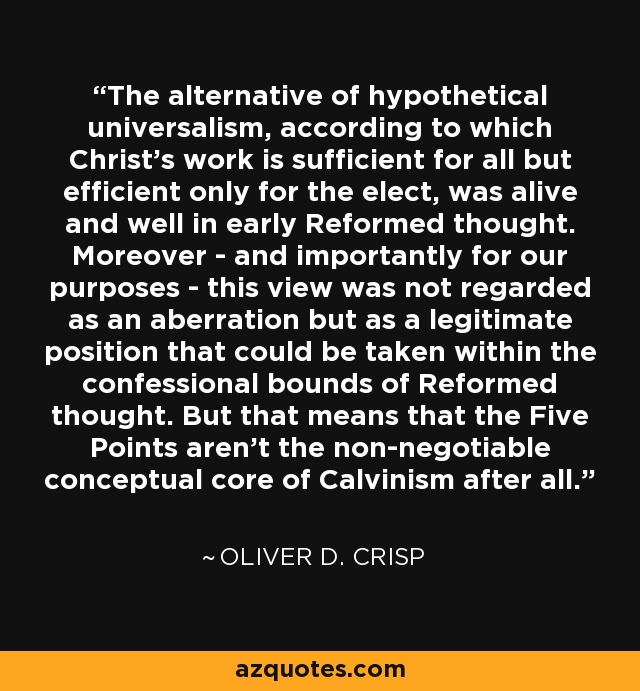-
The alternative of hypothetical universalism, according to which Christ's work is sufficient for all but efficient only for the elect, was alive and well in early Reformed thought. Moreover - and importantly for our purposes - this view was not regarded as an aberration but as a legitimate position that could be taken within the confessional bounds of Reformed thought. But that means that the Five Points aren't the non-negotiable conceptual core of Calvinism after all.
Topics
Cite this Page: Citation







